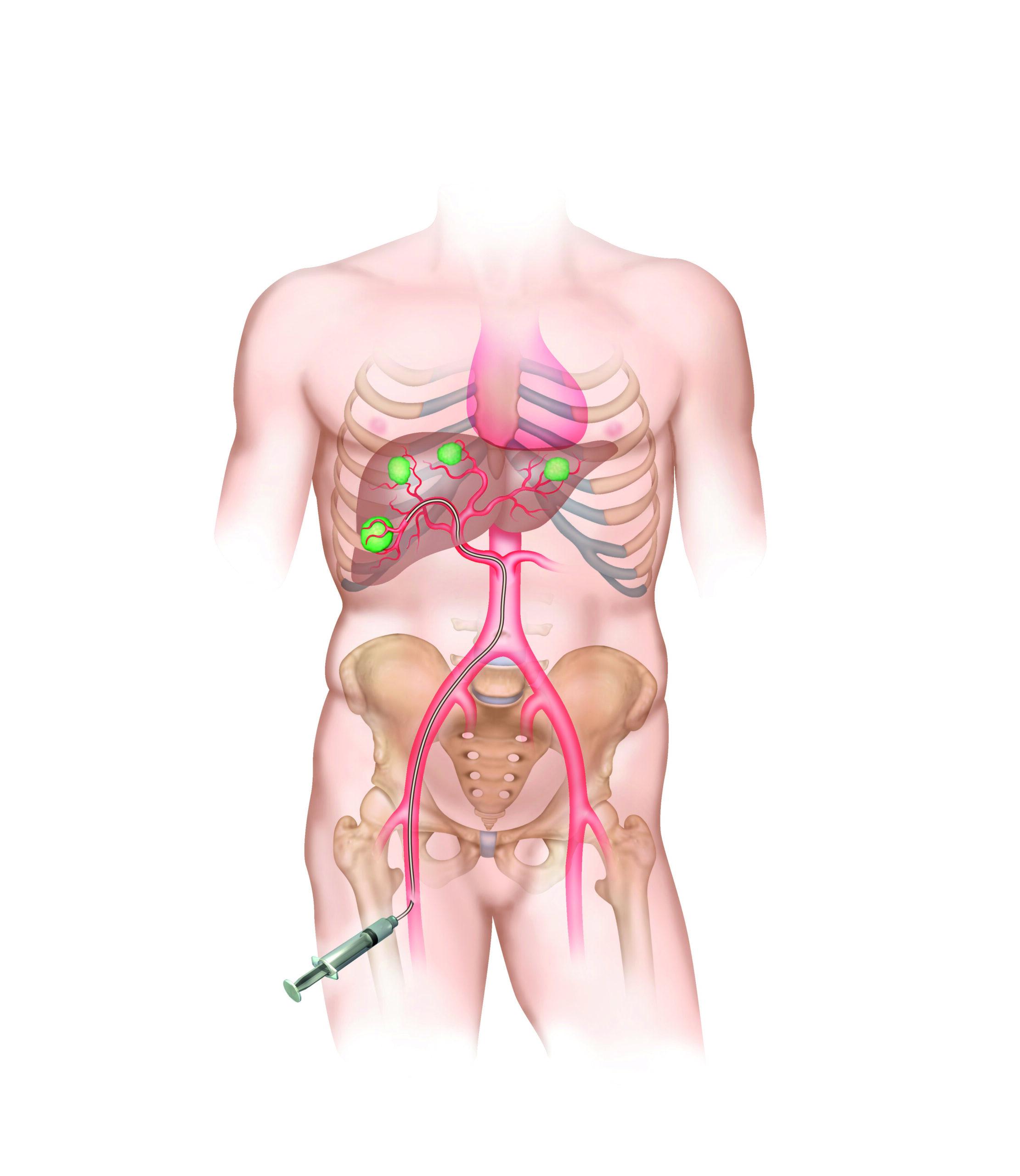By Annette Pinder
The interventional radiology team at Gates Vascular Institute recently completed their first minimally invasive Y-90 procedure called Selective Internal Radiation Therapy (SIRT) to treat patients with inoperable liver cancer.
“SIRT, also known as radioembolization or Y-90, is a procedure in which a small catheter containing glass or resin beads that are filled with the radioactive isotope Y90, or yttrium90, is guided through an artery in a patient’s wrist or groin, and placed directly into the liver’s blood vessels that feed the tumor. The treatment blocks the supply of blood to the cancer cells and delivers a high dose of radiation to the tumor from inside the body, while minimizing its effects to other parts of the body,” explains John McGrath, M.D., interventional radiologist at Kaleida Health and Great Lakes Medical Imaging, and part of Great Lakes Cancer Care Collaborative.
“The treatment allows us to target the cancer while sparing the surrounding healthy tissues. It is a much more focused approach than traditional chemotherapy that can impact the entire body,” says Dr. McGrath. While the treatment is not a cure for cancer in the liver, it has been shown to prolong lives for months or years, and to greatly improve the quality of life of cancer patients. Patients experience few, if any, side effects from Y90 treatment, which is performed in an outpatient setting. Most patients are discharged within four to six hours after the procedure and may resume their normal activities within one to two weeks.
Prior to the treatment, patients see an interventional radiologist for blood testing and an angiogram — an imaging procedure in which dye is injected into the bloodstream and x-ray images are taken. Producing images of the blood vessels feeding the tumor or tumors allows the interventional radiologist to identify the vessels that feed the liver and tumors. Patients are instructed regarding eating, drinking, and taking medications, the importance of having someone accompany them home, and given information on restricting their contact with other people, pets, or children due to the radiation dose.
“Y-90 treatment offers additional minimally invasive treatment options to our patients with primary and secondary liver cancers,” said Christopher Nicholas, M.D., interventional radiologist at Kaleida Health and Great Lakes Medical Imaging, and part of Great Lakes Cancer Care Collaborative. “Innovations like this allow us to offer our patients better outcomes with fewer side effects.”
Patients receive a follow up appointment about two weeks after the procedure. Other treatments, such as chemotherapy, can typically be restarted one to two weeks after the procedure. Follow up imaging, such as CT, MRI, or PET CT, is usually performed approximately eight weeks after the procedure.
To learn more about Y-90 treatment at Gates Vascular Institute, or to request a consultation through Great Lakes Cancer Care Collaborative, visit www.greatlakescancercare.org or call (716) 884-3000.












